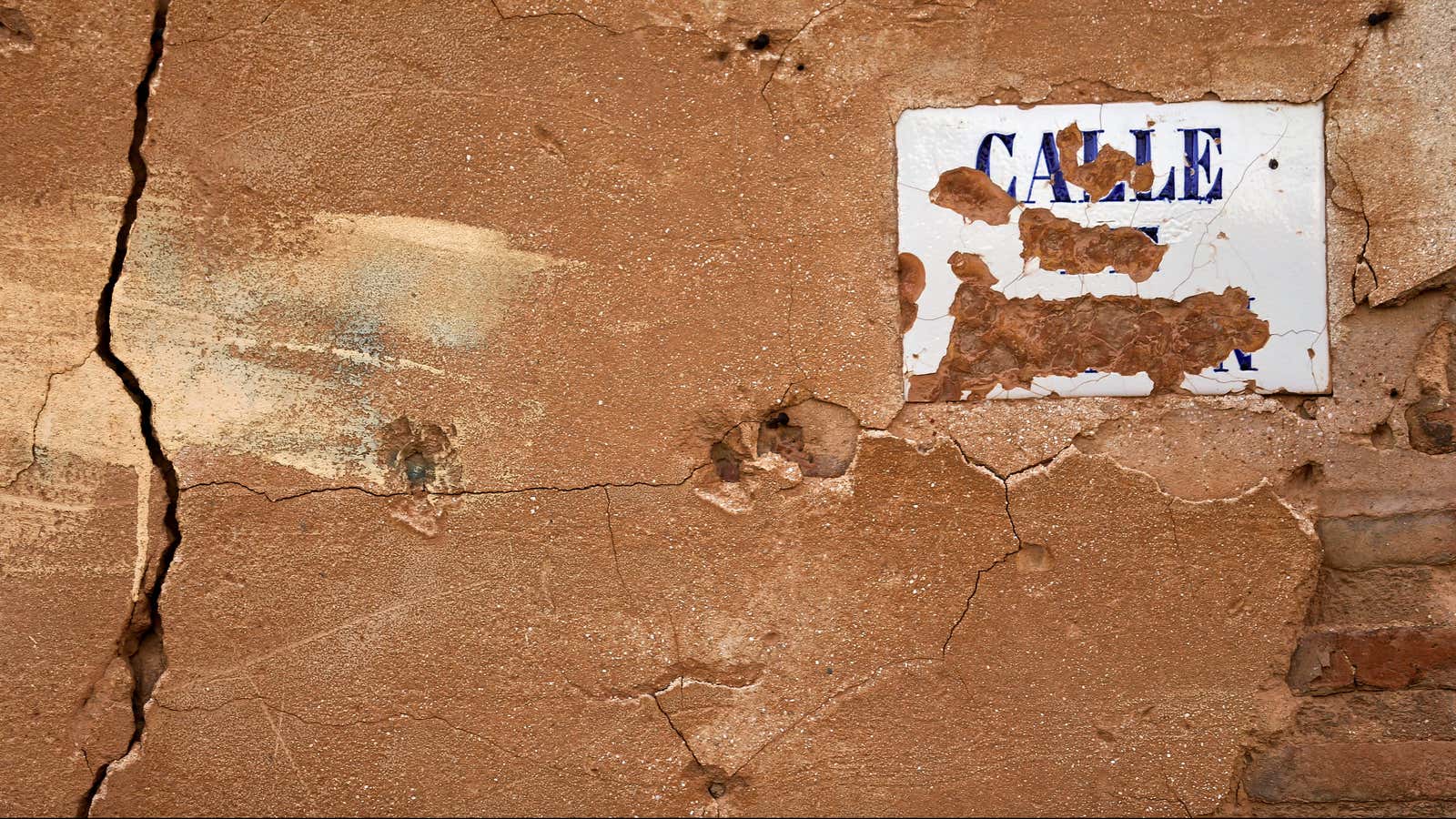Though Francisco Franco’s totalitarian Spanish regime was toppled nearly 40 years ago, its legacy is still present in the country. Walk through the cities of Spain, and you’re likely to find streets named after regime members like general José Millán Astray, attorney Adolfo Muñoz Alonso, minister José Enrique Varela, and many more (link in Spanish).
But not for long.
In February, the government—applying a 2007 law that promised to get rid of the marks of autocratic heritage in public spaces—announced it would retire these street names. Now, cities around the country are renaming them after women, answering the complaint that about 90% of streets in Spain’s cities are named after men—and those honoring women usually reference saints (link in Spanish).
Janette Sadik-Khan, former New York City transportation commissioner, once famously said, “if you can change the street, you can change the world.” If she’s right, Spain is on its way to a metaphorical revolution. Since 2005, the city of Cordoba has enforced a mandate that half of new streets be named after women. In Barcelona, the total number of streets named after women went from 7% in 1996 to 27.7% in 2010 (link in Spanish).
To further correct the imbalance, Valencia will now name 80% of its new streets after women, and Bilbao, Oviedo and Cádiz plan to follow that example.
Many of the streets have or will be named after Spanish women targeted during Franco’s regime, including activists, revolutionaries, and civil rights fighters, such as Soledad Cazorla, the first public prosecutor to specialize in gender violence. Others will carry the names of women of remarkable talent, from Spain and the rest of the world, who distinguished themselves in fields such as physics, or equal rights movements. In the city of Léon, where the selection of name is made by popular vote, a recent group of possible street names included American civil rights activist Rosa Parks, Mexican painter Frida Kahlo, English novelist Jane Austen, and Spanish inventor Ángela Ruiz Robles.
Other countries should take note: the lack of streets named after women is far from just a Spanish problem. In Rome, for instance, only 3.5% of streets carry a woman’s name. In 2015, a study of seven world metropolis (London, Paris, San Francisco, Mumbai, New Delhi, Chennai, and Bangalore) found that only 27.5% streets were named after women.
